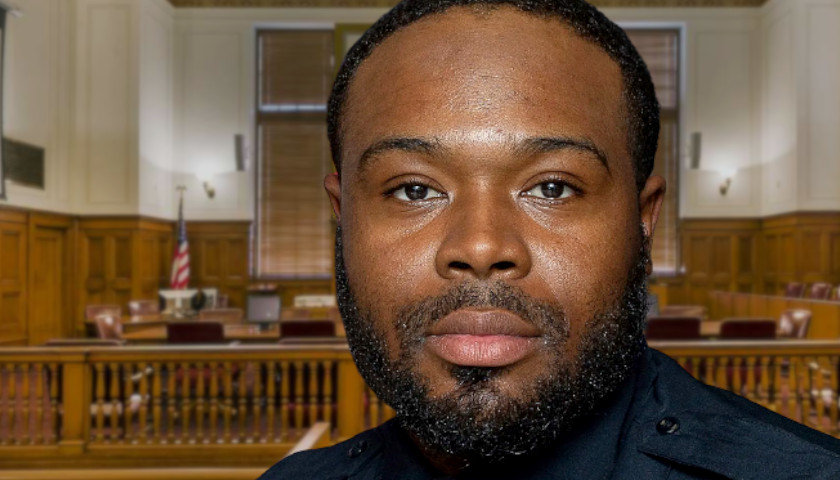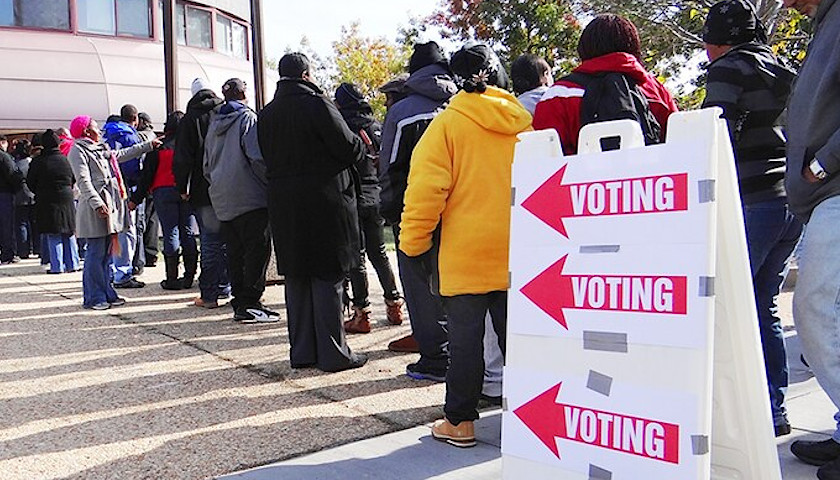The former officers charged in the brutal beating death of Tyre Nichols want his phone, according to court records.
Records filed last week in the U.S. District Court for the Western District of Tennessee documents a “dispute” in which the U.S. District Attorney accuses the defense of trying to “smear” Nichols’ reputation.
“Specifically here, a dispute arose as to whether the government should be compelled to disclose the contents of the dead victim’s cellphone to the defendants,” Assistant U.S. Attorneys Elizabeth Rogers and David Pritchard write in the legal filing.
Demetrius Haley, one of the five former officers accused in the January beating of Nichols, first filed a motion to compel prosecutors to turn over Nichols’ cellphone, as well as an index of investigative material within [the government’s] possession, custody, or control . . . which has not been produced in discovery…”
As The Tennessee Star reported a little more than a month after Nichols’ death, police were investigating rumors that Haley and his fellow officers at the scene were targeting Nichols because of a relationship he allegedly had with Haley’s ex-wife.
Haley (pictured above) was found to have used his personal smartphone to take photos of the handcuffed and bloodied 27-year-old black man, according to records.
“On [Haley’s] personal cell phone, [Haley] took two photographs while standing in front of the obviously injured subject after he was handcuffed,” states the document obtained through media public records requests. “[Haley] admitted [he] shared the photo in a text message with five people; one civilian employee, two MPD officers, and one female acquaintance.” An administrative investigation found that a sixth person also received the same photo.
The Memphis Police Department (MPD) filed the record with the Peace Officer Standards and Training (POST), Tennessee’s police certification board. MPD sought to have Haley and former officers Tadarrius Bean, Justin Smith, Desmond Mills, and Emmitt Martin III decertified. All but one of the officers, all black, are awaiting trial on the state charges. Mills took a plea deal last week and is expected to be sentenced in May.
Haley’s attorneys demanded access to the phone and other materials to form their “own opinion on whether” prosecutors are complying with the Brady obligation. The rule requires the prosecution to turn over all exculpatory evidence — evidence that could exonerate the accused — to the defendant in a criminal case.
Haley’s co-defendants, Smith and Bean, filed notices to join in Haley’s motion to compel the phone’s release.
Prosecutors argue the notice filed by Smith “contained disputed factual allegations that the government believes are an inappropriate smear of character of the dead victim that could taint the jury pool.”
“The government filed its response in opposition, explaining that anything unknown to officers at the time of the assault on the victim, like the contents of the victim’s cellphone, is irrelevant and inadmissible and therefore not required to be disclosed in discovery,” the U.S. Attorney’s court filing states.
Haley’s attorneys have since stated that they are no longer seeking disclosure of Nichols’ cellphone because they had “obtained access,” presumably through the ongoing process in the similar state criminal case, according to the U.S. Attorney’s office.
Haley, Smith and Bean have each filed responses in opposition to the prosecutors’ motion to exclude Nichols’ phone from the evidence list, arguing that “character evidence is irrelevant and inadmissible. That fact would restrict them from turning over the phone, “as well as hopefully preventing the defendants from discussing such irrelevant and inadmissible evidence in public filings.”
The U.S. Attorney’s Office argued, “anything unknown to officers at the time of the assault on the victim is irrelevant and inadmissible.”
In September, a federal grand jury in Memphis returned a multi-count indictment against Mills, 33, Martin 31, Bean, 24; Haley, 30 and Smith, 28.
The former detectives with the controversial SCORPION (“Street Crimes Operation to Restore Peace in Our Neighborhoods) unit were indicted on multiple charges in the federal civil rights case, including using excessive force resulting in the death of Nichols, aiding and abetting each other in using that excessive force, failing to intervene to stop the excessive force, failing to render medical aid, and conspiring or taking action to cover up their misconduct.
They also were charged with several felonies in Shelby County, including second-degree murder, aggravated assault, and aggravated kidnapping. Nichols died days after the traffic stop in which the members of the SCORPION team claimed that Nichols was driving recklessly. Investigators have said there was no evidence to back up those charges.
Last week, Mills pleaded guilty to two felony counts — offering his full cooperation with prosecutors in exchange for a recommendation that he serve no more than 15 years in federal prison. Mills is the first of his fellow fired colleagues to agree to a plea, which was offered in both the state and federal cases.
His four co-defendants are scheduled to go on trial in May.
Federal prosecutors are asking U.S. District Court Judge Mark Norris to order any filings about Nichols’ alleged “bad character evidence” be filed under seal.
“Such an approach would not in any way “prevent[] the defendants from making good faith arguments in pretrial motions, … because the defendants may make any arguments they like in such motions.,” the response argues. “Nor would such an order affect any defendant’s right to investigate and mount a defense. The defendants are free to request any information from the United States that they like and submit any filing they wish so long as their public filings do not contain unsubstantiated, irrelevant claims about the victim that will be inadmissible at trial and are likely to taint the jury pool.”
– – –
M.D. Kittle is the National Political Editor for The Star News Network.










